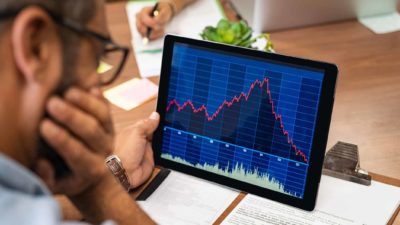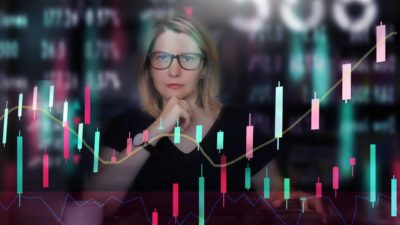Here we go again.
A new variant of COVID-19, named Omicron, over the weekend prompted many countries to close borders and sent share markets tumbling.
The S&P 500 (SP: .INX) sank 2.3% on Saturday morning, while the STOXX Europe 600 (STOXX: SXXP) fell a shocking 3.7%.
The futures market is tipping the S&P/ASX 200 (ASX: XJO) to drop 1.4% on Monday morning, in its first trade after Omicron was declared.
Prime Minister Scott Morrison has called an urgent national cabinet meeting to form a national response to the new health threat.
"It's about whether people are getting a worse illness or it's going to put stress on your hospital system," he told Nine's Today show.
"The fact we've had a new variant is not a surprise. We've been saying all through the pandemic that new variants also come."
All hell is breaking loose. What does this mean for our ASX shares?
No need to panic, says one expert
One expert is urging investors to hold tight and not panic.
DeVere Group chief executive Nigel Green predicted over the weekend that Omicron would trigger a temporary correction, but that would be quickly shrugged off.
"The fact that a new strain has been discovered and, critically, that at this stage we know little about it has caused jitters in the financial markets, which loathe uncertainty," he said.
"The headlines have caused a knee-jerk reaction."
He added it didn't help that US markets were closed for 1.5 days last week due to the Thanksgiving holiday, meaning market movements were exaggerated.
"This wobble is likely to be temporary with markets remaining bullish for the time being."
Just look what happened after Delta arrived
Green pointed out that the Delta variant of the coronavirus triggered only a temporary shock on markets earlier this year.
"Global shares have jumped 16% this year with investors focusing on the post-pandemic economic rebound. They largely shrugged off the Delta variant that caused a mini wave of market nerves in the [northern] summer," he said.
"It's likely that markets will do the same with this new variant."
Health authorities would have been expecting new types of the virus to pop up and would be better prepared after the experience of Delta.
And this, according to Green, would mean stock markets can quickly move on from Omicron worries and focus on other issues.
"Global financial markets will be focusing on other pressing issues including high inflation caused by supply side bottlenecks and the likelihood of a quicker pull away from ultra-loose monetary environment," he said.
"Markets will temporarily wobble on the uncertainty of this new Covid variant, but will remain bullish."









